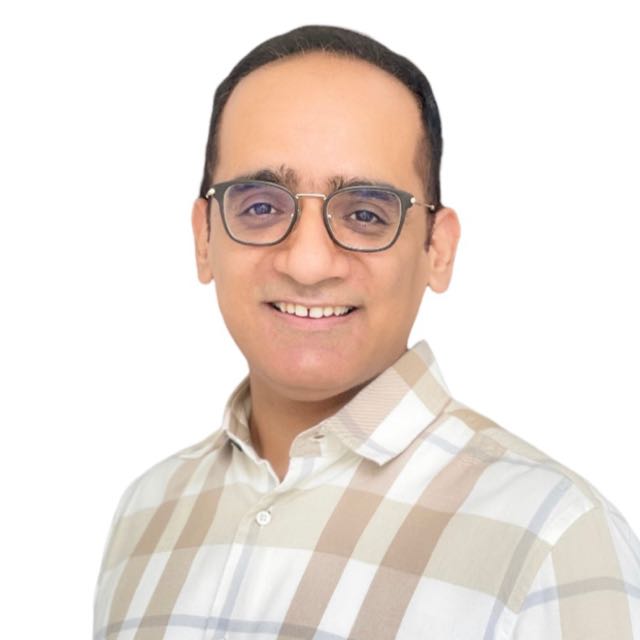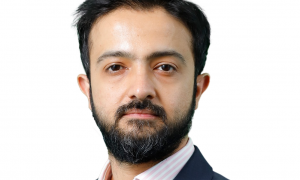This interview has been published by Namrata Singh and The SuperLawyer Team

Starting with your journey, could you share with us how you began your career in law, particularly focusing on your early days and what drew you to specialize in Intellectual Property matters?
A career in law was almost a given, since I grew up seeing my father, who’s also a lawyer, burn the midnight oil to build up his law practice and how despite putting in hours and hours of his day in his cases, he never seemed to get tired, his determination fuelled by the sense of satisfaction he derived from achieving justice for his clients. Since my father’s practice primarily focuses on IP law, my own interest in this branch of law was undoubtedly influenced by him. However, I also consider myself fortunate to have entered the legal profession during a pivotal moment in India’s legal landscape, when our laws were being amended to ensure they are TRIPS compliant. This period marked a significant turning point in the discourse surrounding intellectual property in India, and I was eager to be a part of the dynamic debate and evolution within this field.
Being actively involved in organizations like the International Trademarks Association (INTA), what inspired you to take up leadership roles in the organization, and what are some of the key responsibilities you undertake in your current positions?
I was fortunate to become a part of INTA early in my legal career, joining from the very first year I became a lawyer. INTA has played a crucial role in broadening my understanding of IP law, not just within the context of India but also on a global scale, keeping me informed about the latest developments and trends in the field and forging lifelong friendships with lawyers around the world. As I dedicated my efforts and time to volunteering with INTA to advance its objectives, I found myself taking on leadership roles within the organization.
Currently, I have the privilege of serving as the Chair of INTA’s enforcement committee, which is an integral part of INTA’s Advocacy Group. In this capacity, my responsibilities are to lead a team of about 180 members from around the world examining legislations and IP policies worldwide, particularly focusing on enforcement issues. We advocate on pressing matters in IP, aligning our efforts with INTA’s established positions on these issues. It’s truly fascinating work, and I find great satisfaction in contributing to the advancement of IP law on a global scale.
As the Managing Partner of Worldwide Intellec, you hold a significant leadership role within the firm. Could you tell us about your responsibilities in this position and how you navigate the balance between overseeing the firm’s operations and continuing to actively engage in legal practice?
Running your own firm, regardless of its size, presents a stark contrast to being solely a practicing lawyer. The role of a Managing Partner encompasses a multitude of responsibilities beyond legal matters. It involves overseeing operations, managing human resources, ensuring efficient billing processes, and ultimately taking accountability for anything that goes wrong, regardless of its origins. My responsibilities extend to maintaining a comprehensive overview of all aspects of the firm’s functioning.
While I refrain from micromanaging every detail, as it’s neither feasible nor conducive to productivity, there are instances where my intervention becomes necessary. Striking the right balance between attending to the firm’s administrative needs and continuing to actively engage in legal practice is indeed a delicate task. It entails allocating time effectively to both facets of my role—nurturing the growth of the firm while also fulfilling my duties as a practicing lawyer.
In your opinion, what are some of the biggest challenges currently facing the field of Intellectual Property, and what steps do you think can be taken to address them effectively?
In my opinion, one of the most pressing challenges confronting the field of Intellectual Property (IP) is the rise of artificial intelligence (AI) and its implications for IP law. While it’s challenging to single out one issue as the most significant, the rapid advancement of AI presents a formidable obstacle and challenges the very fundamentals of IP law. The trajectory of AI development is bound to test the boundaries of IP law in unprecedented ways.
As AI continues to evolve, we’re encountering complex questions regarding ownership, authorship, and the protection of creations generated by machines. It’s inevitable that we’ll need to grapple with the legal frameworks surrounding machine-created inventions. Embracing AI-driven innovations will necessitate a re-evaluation of existing IP laws to ensure they remain relevant and effective in the face of technological progress.
As the Chair of the Enforcement Committee and Co-Chair of the Global Advisory Council for South East Asia at INTA, what are some of the key initiatives or projects you’ve been involved in, and how do they contribute to the field of Intellectual Property enforcement?
As part of the Enforcement Committee at INTA, I’ve had the privilege of being part of various initiatives that significantly contribute to the field of Intellectual Property enforcement.
One notable project we recently undertook within the Enforcement Committee was the comprehensive evaluation of laws pertaining to preliminary injunctions across more than 60 countries worldwide. This involved analysing existing practices and identifying best practices in this aspect of IP law. Additionally, we conducted a thorough examination of laws concerning the grant of damages in several jurisdictions, pinpointing areas where legislative gaps exist and improvements are needed.
These endeavours resulted in the formulation of board resolutions by INTA, reflecting the collective insights and recommendations of our team. Witnessing the culmination of efforts into concrete policy positions is immensely gratifying. It underscores the importance of collaborative efforts in shaping the landscape of IP enforcement.
You’ve been invited to speak at various seminars and conferences worldwide on Intellectual Property issues. Could you share a bit about the topics you’ve addressed and the experiences you’ve gained from these speaking engagements?
I have been fortunate to have the opportunity to share my experiences and insights in the field of Intellectual Property (IP) law at numerous seminars and conferences worldwide. Each of these engagements has played a pivotal role in broadening my perspective and deepening my understanding of various facets of IP.
From conducting IP awareness programs aimed at educating stakeholders about the importance of intellectual property rights, to delving into complex topics such as digital rights management and copyright law, I have had the privilege of addressing a diverse range of subjects. These speaking engagements have allowed me to engage with audiences from different backgrounds, facilitating meaningful discussions and exchanges of ideas.
One particularly notable experience was speaking in Geneva at the 15th session of the Advisory Committee on Enforcement (ACE) convened by the World Intellectual Property Organization (WIPO). This platform provided an invaluable opportunity to contribute to discussions on global IP enforcement strategies and initiatives, alongside esteemed delegates from around the world.
In today’s digital age, online infringement of intellectual property is rampant. How do you approach the challenge of protecting your clients’ IP rights in the virtual realm, particularly in the face of emerging threats like deepfakes and AI-generated content?
In today’s digital landscape, the rampant infringement of intellectual property (IP) online presents a formidable challenge for lawyers tasked with protecting their clients’ rights. What I’ve learned is that there’s no one-size-fits-all strategy in this world. Each case presents its own unique complexities, and what works in one instance may not be applicable in another.
Emerging threats like deepfakes and AI-generated content further complicate matters. While it’s tempting to rely solely on legal frameworks to address these challenges, the reality is that a multifaceted approach is necessary. As the saying goes, “When all you have is a hammer, everything looks like a nail.” Instead, the solution lies in a combination of technology and law.
Integrating technological solutions alongside legal strategies can enhance our ability to combat online infringement effectively. This might involve employing digital tools for monitoring and detecting unauthorized use of IP, implementing robust encryption and authentication measures, and leveraging artificial intelligence for proactive enforcement measures.
By embracing a holistic approach that incorporates both technological advancements and legal expertise, we can better safeguard our clients’ IP rights in the virtual realm. It’s imperative that we remain adaptable and innovative in our approaches to address the evolving landscape of online infringement.
Apart from your professional endeavours, do you have any personal hobbies or interests that you enjoy pursuing in your free time?
Well, between the demands of practicing law and running a firm, free time is a rare commodity. But when I do manage to carve out some moments, I like to retreat to my first love – music. Playing the piano has always been a passion of mine, and I’ve even set up a small recording space of my own. It’s my go-to sanctuary when I need a bit of solitude and creative expression amidst the hustle and bustle of professional life.
Given your wealth of experience, what advice would you offer to the current generation of professionals aiming to build a successful career in law, particularly in the realm of Intellectual Property?
The practice of law can be very demanding. Do not give up, and do not work for money in your formative years. Put in all your heart and soul in learning all there has to be learnt in whatever field of law you want to practice. And trust me – truckloads of money will follow you, eventually!
Get in touch with Gaurav Miglani–























